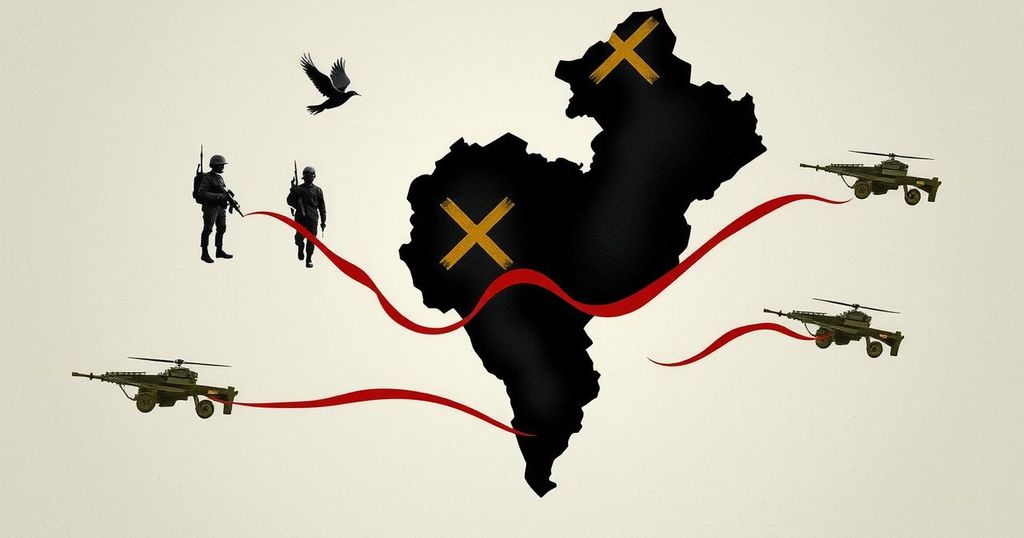Thérèse Kayikwamba Wagner, DRC’s foreign minister, accuses Rwanda of illegal occupation and seeking regime change following the M23 rebels’ takeover of Goma. Rwandan officials deny these accusations, asserting defensive measures against conflict spillover. The Southern African Development Community is addressing the situation with peacekeeping efforts, while tensions persist over accountability and military roles in the region.
Thérèse Kayikwamba Wagner, the foreign minister of the Democratic Republic of Congo (DRC), asserts that Rwanda is illegally occupying parts of the DRC and seeking to instigate regime change. Her statements follow the capture of Goma by Rwanda-backed M23 rebels, highlighting a long-standing issue of accountability regarding Rwandan President Paul Kagame’s actions violating international law.
In response, Rwanda’s government spokesperson Yolande Makolo denied these claims, emphasizing that their military presence aims to protect against escalating conflict. She asserted, “We’re not interested in war, we’re not interested in annexation, we’re not interested in regime change.”
The Southern African Development Community (SADC) convened a special meeting in Zimbabwe to address the escalating conflict in the DRC. SADC has deployed peacekeeping troops, predominantly from South Africa, to dismantle armed groups like the M23, which recently resulted in casualties among their forces.
Rwanda’s President Kagame criticized the SADC’s role, suggesting that their forces are not serving as peacekeepers and suggesting that it is inappropriate to interfere in the situation. Ms. Makolo reiterated that Rwanda’s military actions are a defensive measure in response to threats from the DRC.
Ms. Wagner has called for the suspension of foreign aid to Rwanda and the imposition of sanctions on individuals supporting violence in the DRC. She highlighted the contradiction in Rwanda’s image as a peace-building nation while it allegedly engages in warfare in the Great Lakes region.
The ongoing conflict in the eastern Democratic Republic of Congo has severe implications, notably due to the involvement of the M23 rebel group, which is reportedly supported by Rwanda. The DRC has faced decades of instability, attributed to various foreign interferences, including Rwanda’s military presence and actions. Tensions escalate as regional organizations like the Southern African Development Community (SADC) attempt to re-establish peace through military interventions. These actions often lead to a cycle of violence, raising questions about accountability and responsibility within the geopolitical landscape of the region.
In summary, the situation in the DRC remains complex with accusations against Rwanda for its military involvement and alleged attempts at regime change. The denial from Rwanda contrasts sharply with the DRC’s call for international accountability and sanctions against those exacerbating the conflict. Continued diplomatic dialogue and effective peacekeeping measures are vital for restoring stability in this resource-rich yet war-torn region.
Original Source: www.bbc.com






